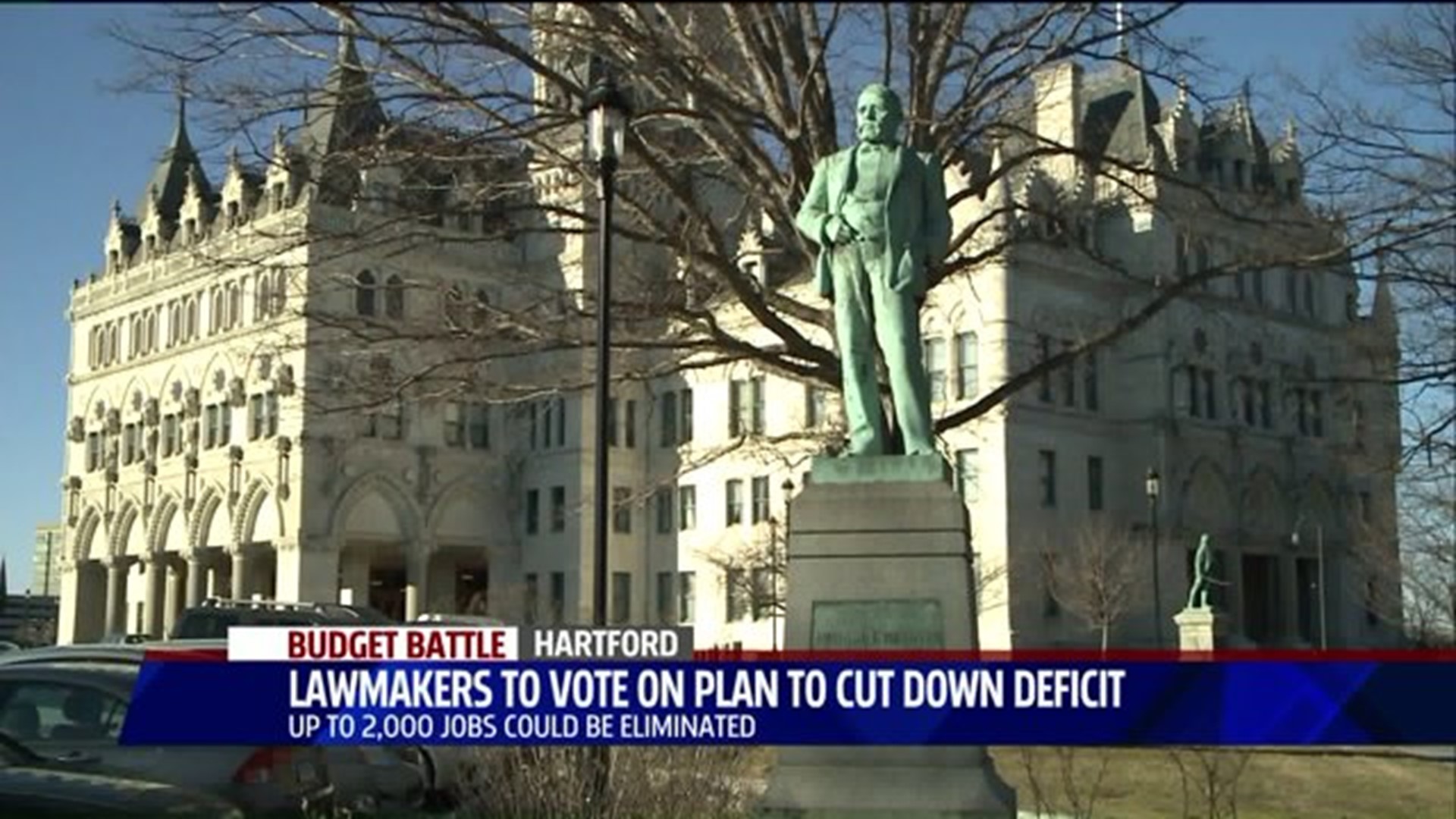HARTFORD -- Connecticut lawmakers voted on a plan to slash the current fiscal year budget deficit, and both houses passed the measure.
The Senate passed the bipartisan budget for the rest of this fiscal year, which ends June 30, first, and the House passed it a short time later.
As part of the deal, there will be layoffs before the end of the fiscal year, making the state government "substantially" smaller for next year, said Gov. Dan Malloy.
"We're going to have a substantial number of layoffs in the not-too-distant future, and I don't think there's a whole lot we can do about that," Malloy said.
It's been the subject of recent negotiations between legislative leaders and Malloy's administration.
“True leadership means staying at the negotiating table, hashing things out and reaching a compromise,” said Senate President Martin Looney (D-New Haven) and Senate Majority Bob Duff (D-Norwalk) in a joint statement. “Today’s bipartisan agreement once again demonstrates that Democrats were willing to compromise in a way where we didn’t abandon our principles of protecting our investments in property tax relief, community hospitals, education, transportation and the safety net. We remain committed to making long-term structural changes to benefit the hardworking families of Connecticut.”
The plan will restore hospital funding in full, preserve town aid, and protect funding for core social services, leaders said.
The bipartisan deficit mitigation package achieves the following:
- Closes the state’s $220 million current year deficit as estimated by the governor’s office and state comptroller.
- Restores all $140 million in hospital funding, of which the state’s portion is $31.6 million, which was previously being withheld. This funding is partial reimbursement for hospitals’ Medicaid expenses and the care they provide to those most in need.
- Preserves core government services and protects funding for many vital social services.
- Eliminates proposed cuts to town aid.
- Replaces the governor’s rescissions proposed on March 16.
- Is made up of approximately 60% in budget cuts that can be rolled out into future years for long-term savings.
"Today was a good compromise because towns and cities were spared millions in cuts that Democrats proposed," House Minority Leader Themis Klarides said of the plan. "We all agreed to restore money for hospitals and we succeeded in minimizing deep cuts to the social services safety nets,’’ she said. “But we still face a massive deficit beginning July 1."
The new fiscal year in 2017 is expected to be about $900 million in deficit, though Malloy said work on reducing that begins tomorrow in the state Legislature.
"State government is going to be substantially smaller next year than it is this year" to accommodate the state's economic reality, Malloy said Tuesday afternoon.

